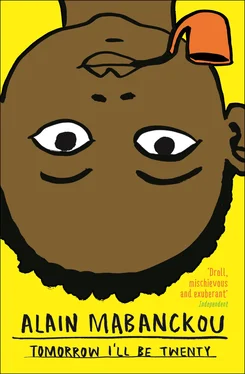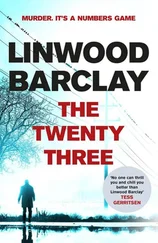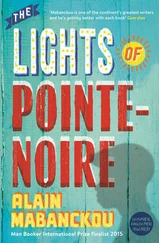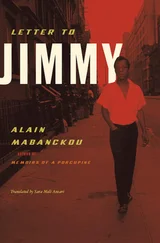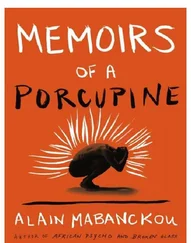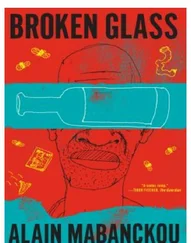Alain Mabanckou
Tomorrow I'll Be Twenty
Alain Mabanckouwas born in 1966 in Congo. He currently lives in Los Angeles, where he teaches literature at UCLA. He was awarded the prestigious Grand Prix de Littérature Henri Gal for his body of work. He has also received the Subsaharan African Literature Prize for Blue-White-Red , and the Prix Renaudot for Memoirs of a Porcupine , which is published by Serpent’s Tail along with his other novels, Black Bazaar, Broken Glass and African Psycho .
For my mother Pauline Kengué — died 1995
For my father Roger Kimangou — died 2004
To Dany Laferrière
The sweetest thought
In the child’s warm heart:
Soiled sheets and white lilac
Tomorrow I’ll be twenty
TCHICAYA U TAM’ SI, Wrong Blood, Edited by P.J. Oswald, 1955
In this country, a boss should always be bald and have a big belly. My uncle isn’t bald, he hasn’t got a big belly, and you don’t realise, the first time you see him, that he’s the actual boss of a big office in the centre of town. He’s an ‘administrative and financial director’. Maman Pauline says an administrative and financial director is someone who keeps all the company’s money for himself and says: ‘I’ll hire you, I won’t hire you, and I’m sending you back to where you came from.’
Uncle René works at the CFAO, the only company in Pointe-Noire that sells cars. He has a telephone and a television in his house. Maman Pauline thinks things like that cost too much for what they are, there’s no point having them because people lived better lives without. Why put a telephone in your own home when you can go and make a call from the post office in the Grand Marché? Why have television when you can listen to the news on the radio? And anyway, the Lebanese down at the Grand Marché sell radios, you can beat them down on the price. You can also pay in instalments if you’re a civil servant or an administrative and financial director, like my uncle.
I often think to myself that Uncle René is more powerful than the God people praise and worship every Sunday at the church of Saint-Jean-Bosco. No one’s ever seen Him, but people are afraid of His mighty power, as though He might tell us off or give us a smack, when in fact He lives far far away, further than any Boeing can fly. If you want to speak to Him, you have to go to church and the priest will pass on a message to Him, which He’ll read if he has a spare moment, because up there He’s run off his feet, morning, noon and night.
Uncle René is anti-church and is always saying to my mother: ‘Religion is the opium of the people!’
Maman Pauline told me, if anyone calls you ‘opium of the people’ you should punch him straight off, because it’s a serious insult, and Uncle René wouldn’t go using a complicated word like ‘opium’ just for the fun of it. Since then, whenever I do something silly, Maman Pauline calls me ‘opium of the people’. And in the playground, if my friends really annoy me I call them ‘opium of the people!’ and then we get into a fight over that.
My uncle says he’s a communist. Usually communists are simple people, they don’t have television, telephone, or electricity, hot water or air conditioning, and they don’t change cars every six months like Uncle René. So now I know you can also be communist and rich.
I think the reason my uncle is tough with us is because the communists are strict about how things should be done, because of the capitalists stealing all the goods of the poor wretched of the Earth, including their means of production. How are the poor wretched of the Earth going to live off their labours if the capitalists own the means of production and refuse to share, eating up the profits, instead of splitting them fifty-fifty with the workers?
The thing that gets my Uncle René really angry is the capitalists, not the communists, who must unite because apparently the final struggle won’t be long now. At least, that’s what they teach us at the école populaire in Moral studies. They tell us, for instance, that we are the future of the Congo, that it’s up to us to make sure that capitalism doesn’t win the final struggle. We are the National Pioneer Movement. To start with we children belong to the National Pioneer Movement and later we’ll belong to the Congolese Workers’ Party — the CPT — and maybe one day one of us will even become President of the Republic, who also runs the CPT.
Hearing me — Michel — use the words my uncle uses, you might think I was a true communist, but in fact I’m not. It’s just that he uses these strange, complicated words so often — ‘capital’, ‘profit’, ‘means of production’, ‘marxism’, ‘leninism’, ‘materialism’, ‘infrastructure’, ‘superstructure’, ‘bourgeoisie’, ‘class struggle’, ‘proletariat’, etc., I’ve ended up knowing them all, even if I do sometimes mix them up without meaning to and don’t always understand them. For instance, when he talks about the wretched of the Earth, what he really means is the starving masses. The capitalists starve them, so they’ll turn up to work the next day, even though they’re being exploited and they didn’t eat yesterday. So before the hungry can win their struggle against the capitalists, they must do a tabula radar of the past and take their problems in hand, instead of waiting for someone else to come and liberate them. Otherwise they’re truly stuffed, they’ll be forever hungry and eternally exploited.
When we sit down to eat at Uncle René’s house, I always get put in the worst seat, bang opposite the photo of an old white guy called Lenin, who won’t take his eyes off me, even though I don’t even know him, and he doesn’t know me either. I don’t like having an old white guy who doesn’t even know me giving me nasty looks, so I look him straight back in the eye. I know it’s rude to look grown up people in the eye, that’s why I do it in secret, or my uncle will get cross and tell me I’m being disrespectful to Lenin who is admired the world over.
Then there’s the photo of Karl Marx and Engels. It seems you’re not meant to split these two old guys up, they’re like twins. They’ve both got big beards, they both think the same thing at the same time, and sometimes they write down both their thoughts in a big book together. It’s thanks to them people now know what communism is. My uncle says it was Marx and Engels who showed that the history of the world was actually just the history of people in their different classes, for example, slaves and masters, landowners and landless peasants and so on. So, some people are on top in this world, and some are on the bottom and suffer because the ones on top exploit the ones at the bottom. But because things have changed a lot and the ones on top try to hide the fact that they’re exploiting the ones at the bottom, Karl Marx and Engels think we should all be quite clear that the differences still exist, and that nowadays there are two big classes at odds with each other, engaged in a ruthless struggle: the bourgeoisie and the proletariats. It’s easy to tell them apart in the street: the bourgeois have big bellies because they eat what the proletarians produce and the proletarians or the starving masses are all skinny because the bourgeois only leave them crumbs to eat, just enough so they can come to work the next day. And Uncle René says this is what you call the exploitation of man by his fellow man.
My uncle has also hung on the wall a photo of our Immortal, comrade president Marien Ngouabi, and one of Victor Hugo, who wrote lots of poems that we recite at school.
Читать дальше
